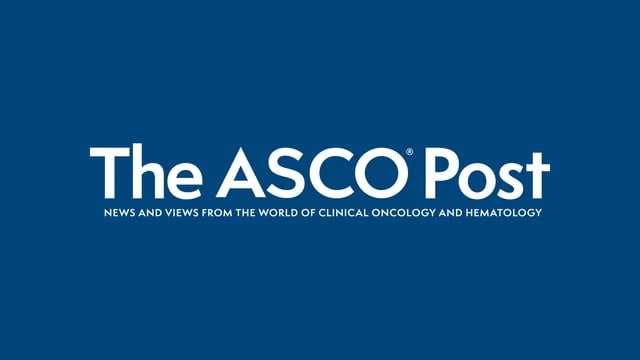Top updates from ASCO - July 2025
Welcome to Medoncodoc, where I aim to enhance cancer awareness, encourage screenings, and educate both patients and junior doctors. Join us in dispelling myths and staying updated on cancer diagnosis, treatment, and survivorship. Connect with Dr. Sunny through phone, email, and social media for support.
Dr. Goutham Sunny
7/29/20254 min read


The ASCO Post: Major Cancer News Updates from July 2025
As July 2025 concludes, the oncology landscape continues to advance at breakneck speed. This month on The ASCO Post, a variety of studies and reports have offered fresh insight, from game-changing clinical trial results to key FDA approvals and shifts in cancer policy. Below is a comprehensive summary of the most important news and research highlights from July 2025.
Breakthroughs in Targeted and Immunotherapies
Osimertinib Combination Demonstrates Survival Benefit
Final overall survival results from the phase III FLAURA2 trial revealed that pairing osimertinib with pemetrexed and platinum-based chemotherapy offers a statistically significant survival advantage for patients with advanced EGFR-mutated non–small cell lung cancer (NSCLC).
HER3-Directed Patritumab Deruxtecan Shows Promise
The phase II TUXEDO-3 trial cohort reported patritumab deruxtecan to be clinically effective in treating leptomeningeal metastases from solid tumors, marking a critical milestone for this patient group.
New Therapeutic Strategies for Melanoma
Long-term phase II data showed that neoadjuvant and adjuvant anti–PD-1/anti–LAG-3 combination (relatlimab/nivolumab) delivered an impressive 4-year event-free survival rate of 80% in patients with advanced, resectable melanoma.
The oncolytic immunotherapy RP1 (vusolimogene oderparepvec) with nivolumab induced deep and durable responses in anti–PD-1–refractory advanced melanoma.
Clinical Trials and Real-World Outcomes
Immunotherapy for Early-Stage NSCLC
In the phase III CheckMate 816 trial, adding neoadjuvant nivolumab to platinum-based chemotherapy led to improved overall survival in stage IB–IIIA NSCLC, potentially setting a new standard of care.
Anal Canal Cancer Sees Progress
The POD1UM-303/InterAACT-2 phase III trial found that adding the PD-1 inhibitor retifanlimab to carboplatin-paclitaxel extended survival for patients with locally recurrent or metastatic squamous cell carcinoma of the anal canal.
Novel Approaches for Bladder and Urothelial Cancers
Urine-based tumor DNA (utDNA) testing may help identify bladder cancer patients at risk for recurrence after non–first-line treatment failure.
Survival among patients with metastatic urothelial cancer improved population-wide following the introduction of immune checkpoint inhibitors (pembrolizumab, atezolizumab) and erdafitinib.
Population Health, Equity, and Disparities
Disparities in Cancer Stage at Diagnosis
Despite advances in screening, racial and ethnic minorities remain more likely to be diagnosed at late-stage for screenable cancers, partly due to neighborhood-level segregation.
Inequities in Data Collection
Research highlighted persistent inconsistencies in recording cancer incidence/mortality among minorities, particularly for multiracial individuals, despite updated federal guidelines.
Obesity, Alcohol, and Cancer Deaths Rise
Obesity-driven cancer deaths have tripled in 2 decades in the U.S., with marked disparities by gender, race, and geography.
Alcohol-related cancer mortality rates have doubled, especially in men and adults over 55.
Screening, Diagnostics, and Technology
Innovations in Imaging and AI
Panoramic photoacoustic computed tomography (PACT) with machine learning was found to be a sensitive alternative to mammography, ultrasound, and MRI for breast cancer screening.
AI models, including ChatGPT-4, have shown high accuracy in extracting and classifying diagnostic data from radiology reports and are being tested for endocrine tumor diagnostics (with ≥99% accuracy).
Limitations of DNA NGS in NUT Carcinoma
Conventional next-generation sequencing (NGS) can miss up to 75% of NUT carcinoma cases, underlining the importance of adopting more sensitive diagnostic techniques.
FDA Approvals and Policy Changes
Key FDA Drug Approvals in July 2025
Sunvozertinib (Zegfrovy) received accelerated approval for NSCLC harboring EGFR exon 20 insertions.
Linvoseltamab-gcpt (Lynozyfic) was approved for multiple myeloma patients who have failed four or more prior therapies.
SIR-Spheres Y-90 resin microspheres became the only radioembolization therapy approved for unresectable hepatocellular carcinoma (HCC).
Medicare Drug Pricing Milestone
Negotiated CMS pricing for ibrutinib, set to take effect in 2026, will be 38% below the manufacturer’s list price—demonstrating the impact of policy on drug affordability.
CBO Warns NIH Cuts May Hamper Future Drug Development
Congressional Budget Office data pointed out that reducing NIH funding could slow new drug development over the next three decades—as Congress debates President Trump’s budget.
Key Studies in Disease-Specific Oncology
Breast Cancer
Short-course hormonal therapy may help tailor the aggressiveness of subsequent treatment in ER-positive, HER2-positive tumors.
Long-term survivors do not show significant post-diagnosis dietary change, highlighting a need for survivorship interventions.
Liver, Prostate, and Colorectal Cancer
STRIDE regimen (tremelimumab + durvalumab) yielded 5-year OS in nearly 20% with unresectable HCC.
Metformin addition to SOC did not show survival benefit in nondiabetic metastatic hormone-sensitive prostate cancer.
Type 2 diabetes may affect colorectal cancer risk and outcomes depending on tumor immunity status.
Gastrointestinal Cancers in the Young
There’s a concerning, sustained rise in early-onset GI cancers beyond colorectal cancer in those under 50.
Supportive Care and Survivorship
COVID-19 Booster Impact
Booster vaccines reduced hospitalizations and ICU admissions for cancer patients exposed to COVID-19.
Resistance Training and Lymphedema
While resistance training has clear musculoskeletal and metabolic benefits, its impact on lymphedema among cancer survivors remains insufficiently understood.
Caregiver Burden
New survey data reveal that the anxiety of a cancer diagnosis deeply affects not just patients, but also their caregivers and families.
Research Methodology and Prognostic Tools
No Survival Link to Pathologic Complete Response in Rectal Cancer
A meta-analysis found no direct association between pathologic complete response and long-term survival in neoadjuvant rectal cancer trials.
Prognostic Score for Hodgkin Lymphoma
The Early-Stage cHL International Prognostic Index (E-HIPI) is now validated to estimate 2-year progression-free survival in early-stage classical Hodgkin lymphoma, supporting individualized risk assessment.
Other Notable News
New CEO for American Cancer Society
Shane Jacobson will assume leadership of the ACS, succeeding Wayne A.I. Frederick, MD, MBA, FACS, starting August 12, 2025.
Chemotherapy Drug Quality Concerns
One out of six chemotherapies in sub-Saharan Africa were found to have serious quality defects, a finding with broad global health implications.
Water Quality Policy
Treating U.S. drinking water for arsenic, chromium-6, and other contaminants could prevent over 50,000 cancer cases.
Conclusion
July 2025 was marked by significant advances and sobering reminders as to the challenges the field continues to face. While cutting-edge science is driving promising new therapies and diagnostics, ongoing efforts must address health equity, affordability, and supportive care to move toward better outcomes for all people touched by cancer.
Connect
Raising cancer awareness and encouraging screenings online.
Contact
Follow
© 2025. All rights reserved.
